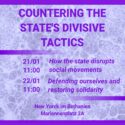Tag: english
-
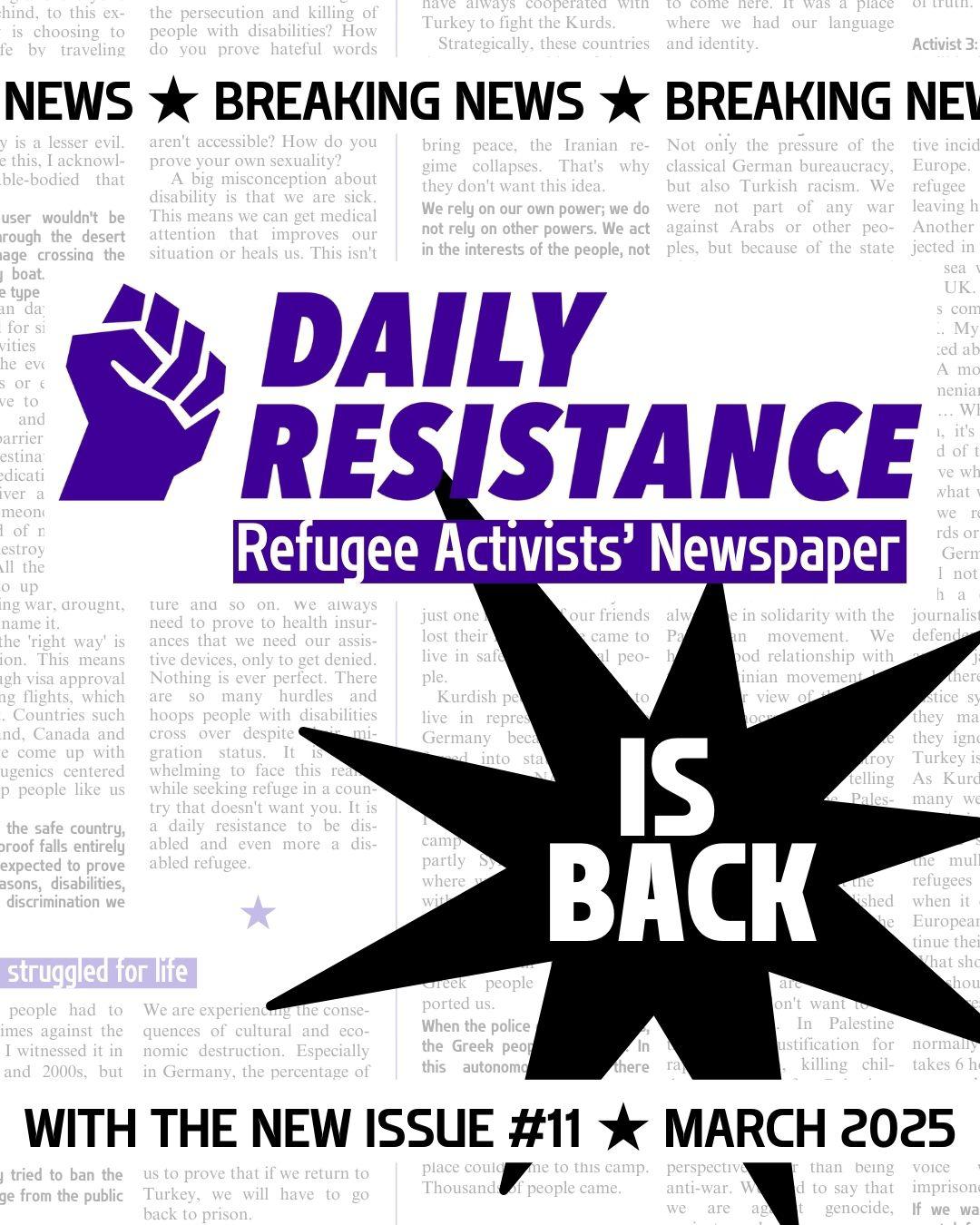
Daily Resistance #11 is out!
Finally, a new issue of Refugee Activists’ Newspaper Daily Resistance has been released – this time as a wallpaper in 12 A3 sheets that can be glued and taped to the wall. As always, it comes in many languages (French, Arabic, Farsi, Turkish, English, German, Russian). The issue features the new protest camp at O-Platz,…
-
Our Kurdish people have always struggled for life
Info-Event on Anti-Kurdish Racism 29 April 2024 in Berlin by borderless collective, Arjin und Freunde The info-event about anti-kurdish racism took place on 29.04.2024 at a self-managed space in Kreuzberg, Berlin, where various left-wing events, meetings and activities in general take place. The event was organized by the borderless collective and Kurdish activists who fled…
-
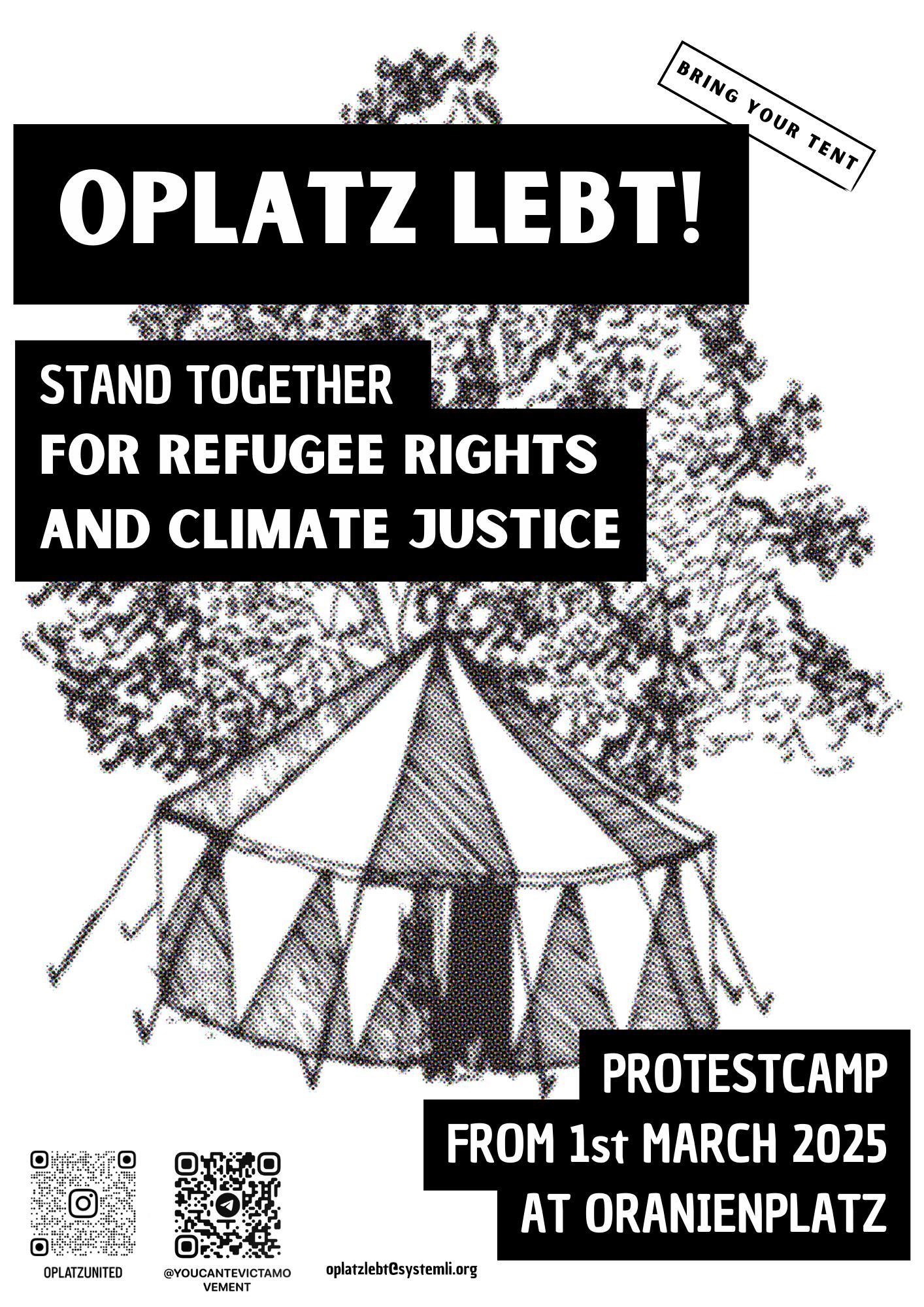
O-Platz lebt! Stand together – for refugee, migrant rights and climate justice
Protest camp 1st-31st of March 2025 We come together at O-Platz in March 2025 to fight for the rights of refugees, migrants and climate justice. We see this month as an opportunity to make our struggle visible by taking space in the middle of people’s daily life. We want to break the isolation and be…
-
Journée Des Migrants Africains, 28 Septembre à O-Platz
Chers citoyens du monde entier! Nous vous invitons un grand événement qui aura lieu cette année à berlin. En effet nous sommes des milliers de personnes qui vivons hors de nos pays. Et c’est pour cela que nous avons mis sur pied #LA_JOURNÉE_DES_MIGRANTS_AFRICAIN qui aura lieu le samedi 28 septembre à Berlin précisément à 📍…
-

You can’t evict a movement…together against CEAS, camps, and deportations
Rally at O-Platz, 9 April, 18:00 Millions of people have taken to the streets in protest against the shift to the right in recent months – often with politicians from the supposed democratic centre in the front row. But despite their lip service to democracy and human rights, current politics in Germany is outdoing itself…
-
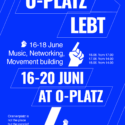
We are O-Platz! Our movement is present from 16-20 June at Oranienplatz
Oranienplatz has been a symbolic site for the refugee and migrant movement in Germany for more than 10 years now. The square has been the main site for ongoing protests, rallies and sit-ins, all aimed at drawing attention to the plight of people on the move seeking asylum in Germany. The significance of O-Platz for…
-
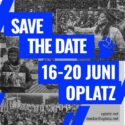
We are O-Platz – Call for action to join the orga-team for the summer event 2023!
Oranienplatz has been a symbolic site for the refugee and migrant movement in Germany for more than 10 years now. The square has been the main site for ongoing protests, rallies and sit-ins, all aimed at drawing attention to the plight of people on the move seeking asylum in Germany. The significance of O-Platz for…
-
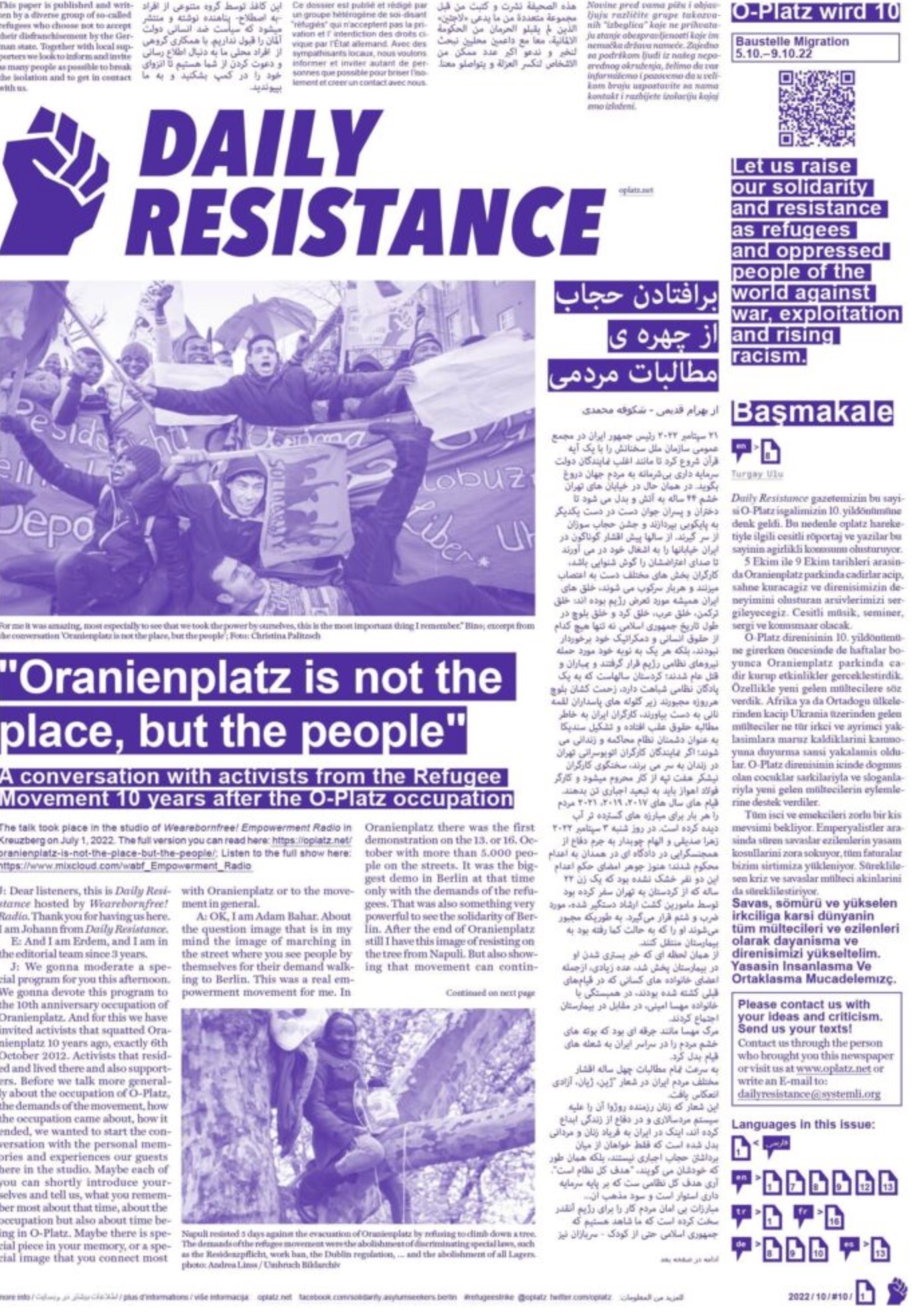
Issue #10 of Daily Resistance is out!
Yesterday morning, 1 October, the 10th issue of “Daily Resistance” was sent to our printer and only one day later it got delivered! It’s a special #OplatzTurns10 issue and bigger than usual, devoted to the Refugee Movement from O-Platz/Ohlauer and all movements around the world. Get your copies by writing a mail to dailyresistance(at)systemli(dot)org –…
-
10 years of the protest camp at Oranienplatz … No reason to celebrate
I don’t want our history to be falsified: When you commemorate the protest camp on Oranienplatz, which started in October 2012, remember correctly! Remember Mohammad Rahsepar! At the end of January 2012, Mohammad Rahsepar took his own life at a refugee camp in Würzburg. He had already expressed suicidal thoughts in December. Therefore, doctors had…
